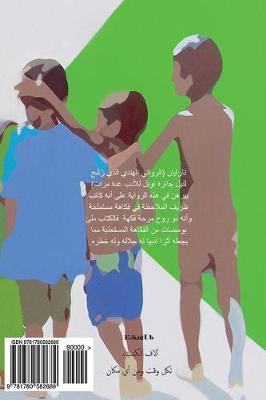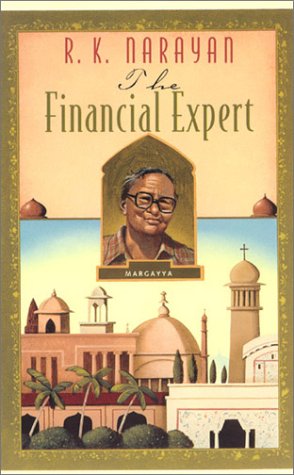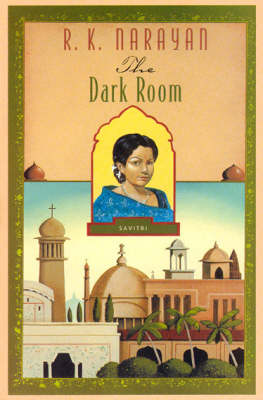Phoenix Fiction S.
5 total works
"There are writers--Tolstoy and Henry James to name two--whom we hold in awe, writers--Turgenev and Chekhov--for whom we feel a personal affection, other writers whom we respect--Conrad for example--but who hold us at a long arm's length with their 'courtly foreign grace.' Narayan (whom I don't hesitate to name in such a context) more than any of them wakes in me a spring of gratitude, for he has offered me a second home. Without him I could never have known what it is like to be Indian."--Graham Greene Offering rare insight into the complexities of Indian middle-class society, R. K. Narayan traces life in the fictional town of Malgudi. The Dark Room is a searching look at a difficult marriage and a woman who eventually rebels against the demands of being a good and obedient wife. In Mr. Sampath, a newspaper man tries to keep his paper afloat in the face of social and economic changes sweeping India. Narayan writes of youth and young adulthood in the semiautobiographical Swami and Friends and The Bachelor of Arts.
Although the ordinary tensions of maturing are heightened by the particular circumstances of pre-partition India, Narayan provides a universal vision of childhood, early love and grief. "The experience of reading one of his novels is ...comparable to one's first reaction to the great Russian novels: the fresh realization of the common humanity of all peoples, underlain by a simultaneous sense of strangeness--like one's own reflection seen in a green twilight."--Margaret Parton, New York Herald Tribune
Although the ordinary tensions of maturing are heightened by the particular circumstances of pre-partition India, Narayan provides a universal vision of childhood, early love and grief. "The experience of reading one of his novels is ...comparable to one's first reaction to the great Russian novels: the fresh realization of the common humanity of all peoples, underlain by a simultaneous sense of strangeness--like one's own reflection seen in a green twilight."--Margaret Parton, New York Herald Tribune
"There are writers--Tolstoy and Henry James to name two--whom we hold in awe, writers--Turgenev and Chekhov--for whom we feel a personal affection, other writers whom we respect--Conrad for example--but who hold us at a long arm's length with their 'courtly foreign grace.' Narayan (whom I don't hesitate to name in such a context) more than any of them wakes in me a spring of gratitude, for he has offered me a second home. Without him I could never have known what it is like to be Indian."--Graham Greene Offering rare insight into the complexities of Indian middle-class society, R. K. Narayan traces life in the fictional town of Malgudi. The Dark Room is a searching look at a difficult marriage and a woman who eventually rebels against the demands of being a good and obedient wife. In Mr. Sampath, a newspaper man tries to keep his paper afloat in the face of social and economic changes sweeping India. Narayan writes of youth and young adulthood in the semiautobiographical Swami and Friends and The Bachelor of Arts.
Although the ordinary tensions of maturing are heightened by the particular circumstances of pre-partition India, Narayan provides a universal vision of childhood, early love and grief. "The experience of reading one of his novels is ...comparable to one's first reaction to the great Russian novels: the fresh realization of the common humanity of all peoples, underlain by a simultaneous sense of strangeness--like one's own reflection seen in a green twilight."--Margaret Parton, New York Herald Tribune
Although the ordinary tensions of maturing are heightened by the particular circumstances of pre-partition India, Narayan provides a universal vision of childhood, early love and grief. "The experience of reading one of his novels is ...comparable to one's first reaction to the great Russian novels: the fresh realization of the common humanity of all peoples, underlain by a simultaneous sense of strangeness--like one's own reflection seen in a green twilight."--Margaret Parton, New York Herald Tribune
"There are writers--Tolstoy and Henry James to name two--whom we hold in awe, writers--Turgenev and Chekhov--for whom we feel a personal affection, other writers whom we respect--Conrad for example--but who hold us at a long arm's length with their 'courtly foreign grace.' Narayan (whom I don't hesitate to name in such a context) more than any of them wakes in me a spring of gratitude, for he has offered me a second home. Without him I could never have known what it is like to be Indian."--Graham Greene Offering rare insight into the complexities of Indian middle-class society, R. K. Narayan traces life in the fictional town of Malgudi. The Dark Room is a searching look at a difficult marriage and a woman who eventually rebels against the demands of being a good and obedient wife. In Mr. Sampath, a newspaper man tries to keep his paper afloat in the face of social and economic changes sweeping India. Narayan writes of youth and young adulthood in the semiautobiographical Swami and Friends and The Bachelor of Arts.
Although the ordinary tensions of maturing are heightened by the particular circumstances of pre-partition India, Narayan provides a universal vision of childhood, early love and grief. "The experience of reading one of his novels is ...comparable to one's first reaction to the great Russian novels: the fresh realization of the common humanity of all peoples, underlain by a simultaneous sense of strangeness--like one's own reflection seen in a green twilight."--Margaret Parton, New York Herald Tribune
Although the ordinary tensions of maturing are heightened by the particular circumstances of pre-partition India, Narayan provides a universal vision of childhood, early love and grief. "The experience of reading one of his novels is ...comparable to one's first reaction to the great Russian novels: the fresh realization of the common humanity of all peoples, underlain by a simultaneous sense of strangeness--like one's own reflection seen in a green twilight."--Margaret Parton, New York Herald Tribune
In The Financial Expert, R. K. Narayan once again transports readers to the southern Indian town of Malgudi. This story centers around the life and pursuits of Margayya, a man of many hopes but few resources, who spends his time under the banyan tree offering expert financial advice to those willing to pay for his knowledge. Margayya's rags-to-riches story brings forth the rich imagery of Indian life with the absorbing details and vivid storytelling that are Narayan's trademarks. "The novels of R. K. Narayan are the best I have read in any language for a long time."--Amit Roy, Daily Telegraph "The experience of reading one of his novels is ...comparable to one's first reaction to the great Russian novels: the fresh realization of the common humanity of all peoples."--Margaret Parton, New York Herald Tribune Book Review "The hardest of all things for a novelist to communicate is the extraordinary ordinariness of most human happiness...Jane Austen, Soseki, Chekhov: a few bring it off. Narayan is one of them."--Francis King, Spectator
"There are writers--Tolstoy and Henry James to name two--whom we hold in awe, writers--Turgenev and Chekhov--for whom we feel a personal affection, other writers whom we respect--Conrad for example--but who hold us at a long arm's length with their 'courtly foreign grace.' Narayan (whom I don't hesitate to name in such a context) more than any of them wakes in me a spring of gratitude, for he has offered me a second home. Without him I could never have known what it is like to be Indian."--Graham Greene Offering rare insight into the complexities of Indian middle-class society, R. K. Narayan traces life in the fictional town of Malgudi. The Dark Room is a searching look at a difficult marriage and a woman who eventually rebels against the demands of being a good and obedient wife. In Mr. Sampath, a newspaper man tries to keep his paper afloat in the face of social and economic changes sweeping India. Narayan writes of youth and young adulthood in the semiautobiographical Swami and Friends and The Bachelor of Arts.
Although the ordinary tensions of maturing are heightened by the particular circumstances of pre-partition India, Narayan provides a universal vision of childhood, early love and grief. "The experience of reading one of his novels is ...comparable to one's first reaction to the great Russian novels: the fresh realization of the common humanity of all peoples, underlain by a simultaneous sense of strangeness--like one's own reflection seen in a green twilight."--Margaret Parton, New York Herald Tribune
Although the ordinary tensions of maturing are heightened by the particular circumstances of pre-partition India, Narayan provides a universal vision of childhood, early love and grief. "The experience of reading one of his novels is ...comparable to one's first reaction to the great Russian novels: the fresh realization of the common humanity of all peoples, underlain by a simultaneous sense of strangeness--like one's own reflection seen in a green twilight."--Margaret Parton, New York Herald Tribune




